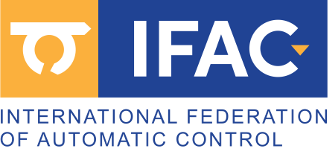
Taskforce of Practice-Academic Collaboration |
We greatly appreciate your willingness to participate in this request for information. We anticipate it might take up to about 25 minutes of your time.
This survey is intended to collect information on collaborations between academia and the practice. The “Practice” includes all that use control – those who apply or develop might be in the manufacturing industry, the military, research labs, service providers, government agencies, device manufacturers, and such. “Academe” refers to those teaching and doing automation/control research in engineering programs.
The objective is to publish a document of best practices related to successful and sustainable collaborations between academe and the practice; hopefully to facilitate successes.
Collaboration could include: joint research or development, distance education, guest lectures and seminars, co-development of challenge problems, advisory committees, curriculum development taskforces, equipment/software donations for instruction or for research, faculty sabbaticals in industry, co-op and intern programs, practice school graduate programs, …
The survey data will be analyzed by a taskforce within the “Industry Committee” of the International Federation of Automatic Control (IFAC, https://www.ifac-control.org/), created to address and bridge “the gap”. Taskforce members (August 2020) are:
David A. Anisi, Associate Professor, NMBU/UiA, Oslo, Norway
Philippe Goupil, Dr., Airbus, France
Chris Manzie, Professor, The University of Melbourne, Australia
R. Russell Rhinehart (Russ), Professor Emeritus, Oklahoma State University, USA
Bran Selic, President and Founder, Malina Software Corp. Canada
Atanas Serbezov, Professor, Rose-Hulman Institute, USA
Jaroslav Sobota, Control System Engineer, NTIS Research Centre, University of West Bohemia in Pilsen, Czech Republic
If you would like to provide information on more than one initiative, please do it on separate surveys. If the collaboration no longer exists, the information about it will still be useful to guide best practices.
Unless we have your permission, all information will remain anonymous, and any report will be free of specific connectivity. If you prefer to not provide some information, just leave that question blank. We will be following the IFAC privacy policy in processing the data: https://www.ifac-control.org/privacy-policy.
For your awareness of the information we are seeking, here is an outline of the survey.
Survey Outline:
1. Consent.
2. Name and affiliation of responder.
3. Title of the Collaboration Initiative.
4. Location of the Collaboration Initiative.
5. Academic discipline(s) involved.
6. Application domain(s) involved.
7. Practice sector(s).
8. Academic sector(s).
9. Description of how the participants interact.
10. Funding portion – Industry, Government, Foundation, Academe.
11. Benefits/Incentives to all participants.
12. Key attributes essential for success.
13. Top several dos and don’ts for success.
14. Additional comments.
Collaboration could include: joint research or development, distance education, guest lectures and seminars, co-development of challenge problems, advisory committees, curriculum development taskforces, equipment/software donations for instruction or for research, faculty sabbaticals in industry, co-op and intern programs, practice school graduate programs, …
The survey data will be analyzed by a taskforce within the “Industry Committee” of the International Federation of Automatic Control (IFAC, https://www.ifac-control.org/), created to address and bridge “the gap”. Taskforce members (August 2020) are:
David A. Anisi, Associate Professor, NMBU/UiA, Oslo, Norway
Philippe Goupil, Dr., Airbus, France
Chris Manzie, Professor, The University of Melbourne, Australia
R. Russell Rhinehart (Russ), Professor Emeritus, Oklahoma State University, USA
Bran Selic, President and Founder, Malina Software Corp. Canada
Atanas Serbezov, Professor, Rose-Hulman Institute, USA
Jaroslav Sobota, Control System Engineer, NTIS Research Centre, University of West Bohemia in Pilsen, Czech Republic
If you would like to provide information on more than one initiative, please do it on separate surveys. If the collaboration no longer exists, the information about it will still be useful to guide best practices.
Unless we have your permission, all information will remain anonymous, and any report will be free of specific connectivity. If you prefer to not provide some information, just leave that question blank. We will be following the IFAC privacy policy in processing the data: https://www.ifac-control.org/privacy-policy.
For your awareness of the information we are seeking, here is an outline of the survey.
Survey Outline:
1. Consent.
2. Name and affiliation of responder.
3. Title of the Collaboration Initiative.
4. Location of the Collaboration Initiative.
5. Academic discipline(s) involved.
6. Application domain(s) involved.
7. Practice sector(s).
8. Academic sector(s).
9. Description of how the participants interact.
10. Funding portion – Industry, Government, Foundation, Academe.
11. Benefits/Incentives to all participants.
12. Key attributes essential for success.
13. Top several dos and don’ts for success.
14. Additional comments.